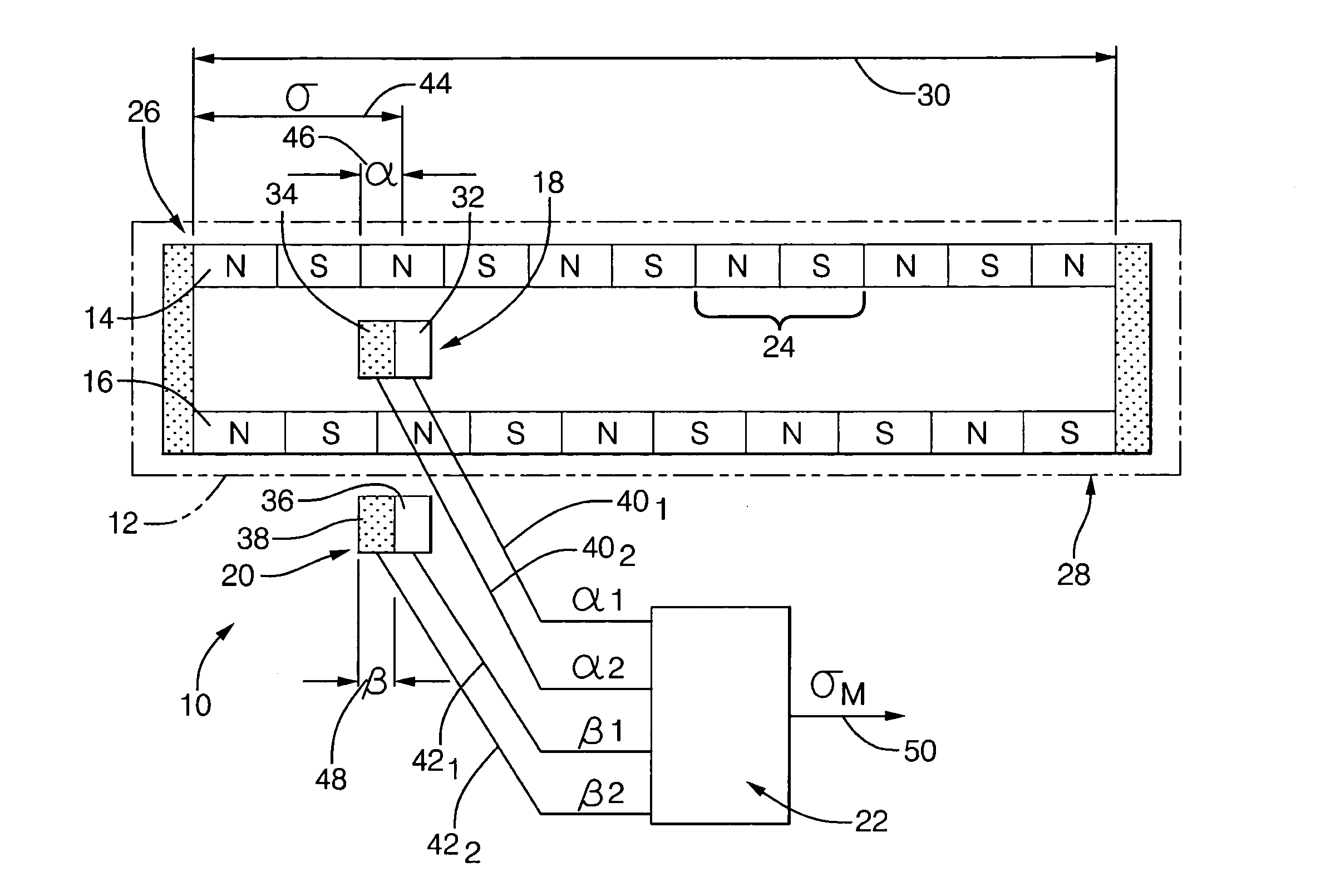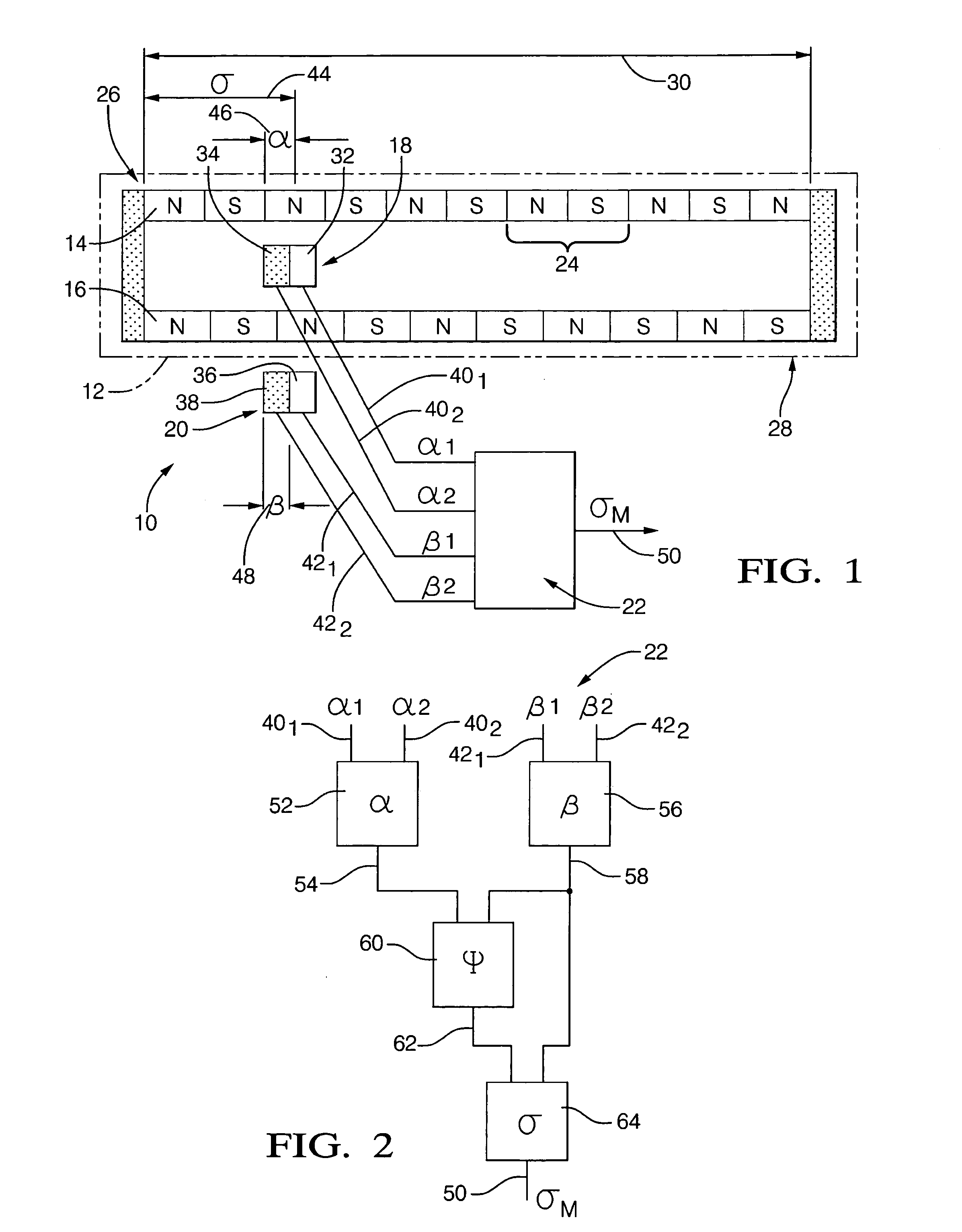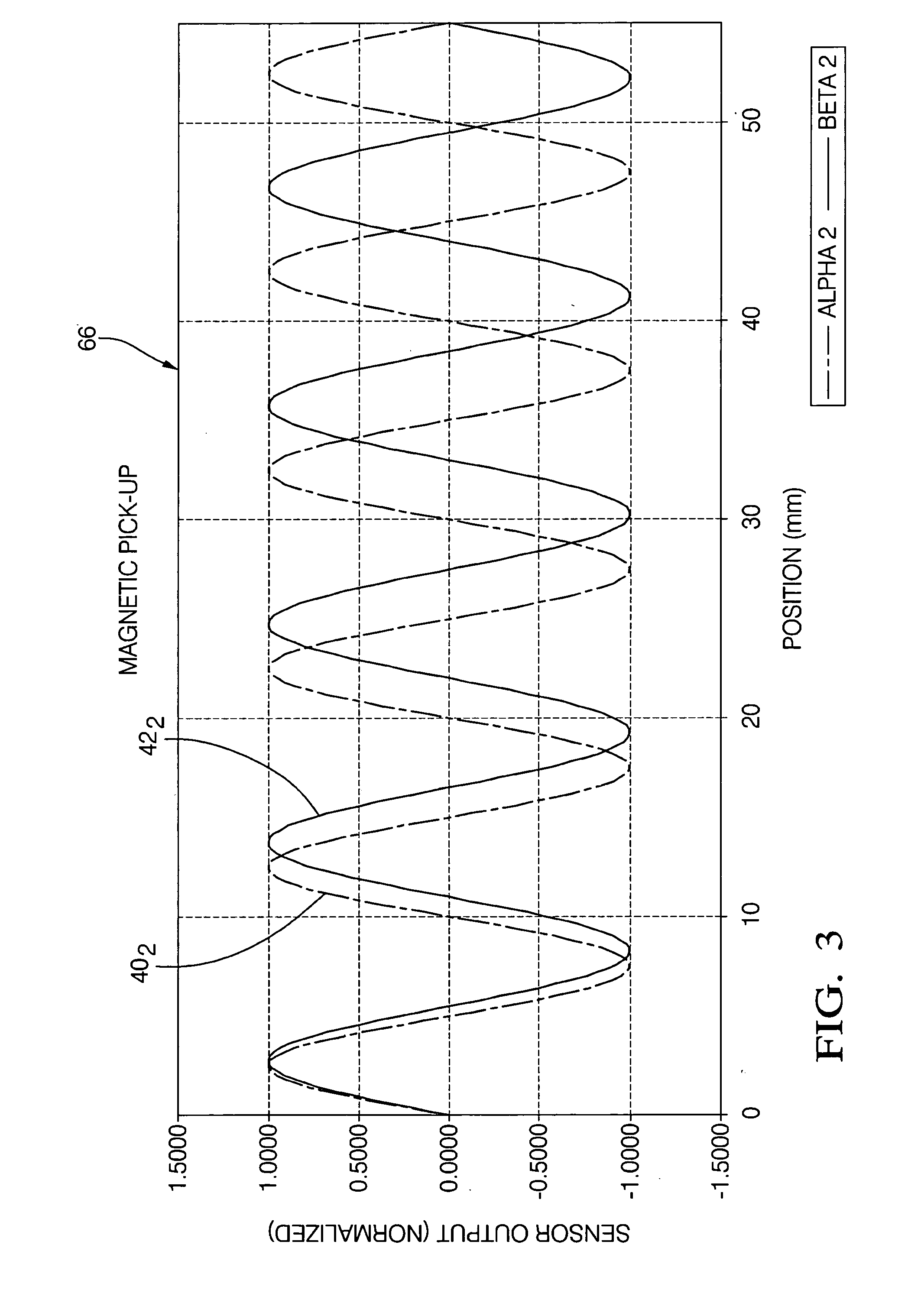Non-contact linear absolute position sensor
a position sensor and non-contact technology, applied in the field of position sensors, can solve the problems of affecting an otherwise accurate measurement, difficult to achieve good temperature compensation using hall effect sensors alone, and relative high degree of tolerability of parts, so as to achieve less predictable change in dimension, accurate output, and robustness.
- Summary
- Abstract
- Description
- Claims
- Application Information
AI Technical Summary
Benefits of technology
Problems solved by technology
Method used
Image
Examples
Embodiment Construction
[0019] Referring now to the figures wherein like reference numerals are used to identify identical components in the various views, FIG. 1 is a schematic and block diagram view of a sensor system 10 in accordance with the present invention. Sensor system 10 is configured to provide an output signal indicative of an absolute linear position of a traveling body, for example, traveling body 12 (shown in phantom line) in FIG. 1.
[0020] The present invention provides for a non-contact sensor system, which avoids wear and tear, providing like-new performance even after long use. As will be described in greater detail below, a sensor system according to the invention also provides for accurate absolute linear position measurements even over temperature variations.
[0021] As described in the Background, there are many uses for a sensor system according to the invention. Examples include, but are not limited to, those mentioned in the Background, namely measuring long linear travel parts suc...
PUM
 Login to View More
Login to View More Abstract
Description
Claims
Application Information
 Login to View More
Login to View More - R&D
- Intellectual Property
- Life Sciences
- Materials
- Tech Scout
- Unparalleled Data Quality
- Higher Quality Content
- 60% Fewer Hallucinations
Browse by: Latest US Patents, China's latest patents, Technical Efficacy Thesaurus, Application Domain, Technology Topic, Popular Technical Reports.
© 2025 PatSnap. All rights reserved.Legal|Privacy policy|Modern Slavery Act Transparency Statement|Sitemap|About US| Contact US: help@patsnap.com



